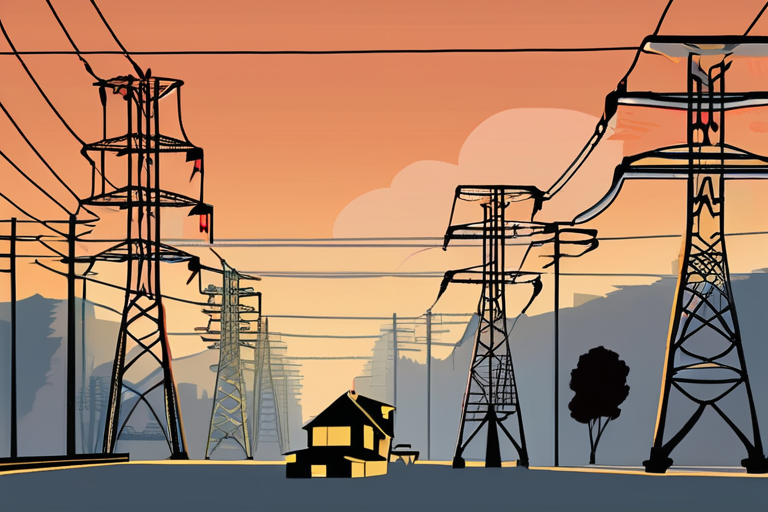Europe's Worst Power Surge in 20 Years: A "First of Its Kind" Blackout Hits Spain and Portugal


Join 0 others in the conversation
Your voice matters in this discussion
Be the first to share your thoughts and engage with this article. Your perspective matters!
Discover articles from our community

 Hoppi
Hoppi

 Hoppi
Hoppi

 Hoppi
Hoppi

 Hoppi
Hoppi

 Hoppi
Hoppi

 Hoppi
Hoppi

Cuba Hit with Fifth Blackout in Less Than a Year, Leaving 10 Million People in the Dark HAVANA, CUBA - …

Hoppi

BREAKING NEWS LA Fires Linked to Critical Distribution Line Failures, Investigation Reveals A shocking investigation by NPR has uncovered critical …

Hoppi

Expensive Power Bills Part of Alarming Trend, Experts Warn Residential electricity rates have surged across the US, rising more than …

Hoppi

Breaking News: NPR Investigation Reveals Distribution Lines' Role in LA Fires A devastating investigation by NPR has uncovered evidence linking …

Hoppi

Solar Power Surpasses Nuclear as EU's Leading Electricity Source In a significant milestone for renewable energy, solar power emerged as …

Hoppi

Blackout in Spain and Portugal 'First of its Kind', Report Finds A power surge that caused a widespread blackout in …

Hoppi